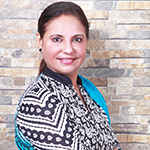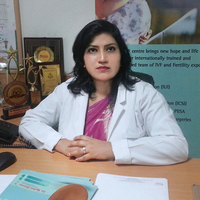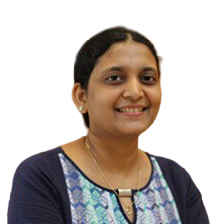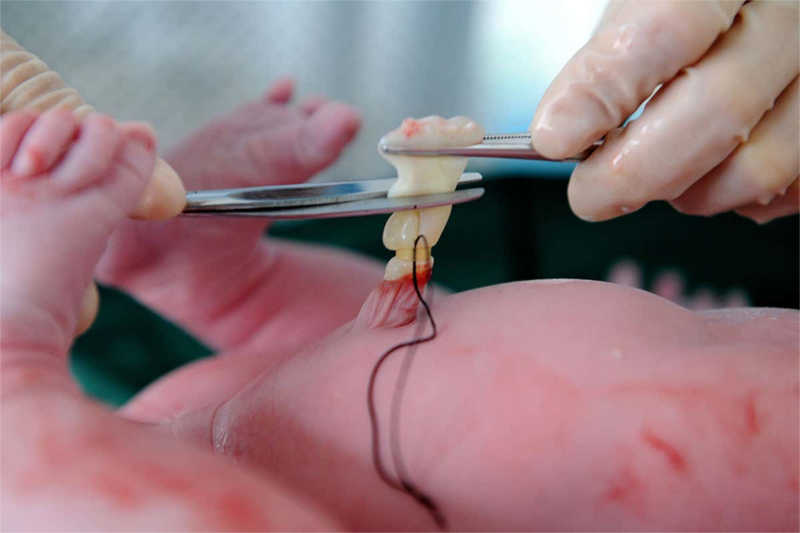What is Down Syndrome? Everything You Need to Know
Down syndrome, also known as Down's syndrome, is a genetic disorder that causes moderate to severe physical and developmental difficulties. Simply put, Down syndrome is characterized by the presence of an extra chromosome.
Chromosomes are tiny "bundles" of genes in the body. They determine how a baby's body is shaped and functions as the baby grows during pregnancy in its mother's womb and after birth.
A normal human baby is born with 46 chromosomes. Kids with Down syndrome have an extra copy of one of these chromosomes, chromosome 21 and because of this reason Down syndrome is also known as trisomy 21.
The vast majority of babies born with Down Syndrome go on to live long, and productive lives. However, there are some health issues that may arise due to the condition itself or from complications associated with Down Syndrome. We will discuss health complications arising from Down syndrome later in the article.
Down syndrome is a disorder of the genes and cannot be cured. However, doctors know more about it now than ever. For babies born with Down Syndrome, getting the proper care early in life can make a significant difference in helping them live a full and meaningful life.
What are the symptoms of down syndrome?
People with Down syndrome often have a distinctive facial appearance that includes a flattened face, the outer corners of the eyes facing up (upslanting palpebral fissures), small ears, a short neck, and a tongue that tends to protrude from the mouth.
People with Down syndrome often have small hands and feet, as well as a single crease on their hands.
Compared to children without Down syndrome, an infant born with Down syndrome might have an average weight but will develop more slowly. Affected babies may have difficulty growing and developing speech and language later and more slowly than in children without Down syndrome. In addition, speech can be difficult to understand in people with Down syndrome.
Down syndrome can have many effects and is different for everyone. Some Down syndrome babies will grow up to live almost entirely independently, while others will need more help looking after themselves.
Mental abilities vary, but most people with Down syndrome have mild to moderate thinking, reasoning, and understanding problems. However, they will learn and acquire new skills throughout their lives. But it may take them longer to achieve important goals such as walking, speaking, and developing social skills.
Behavioral problems are frequently reported in children with Down syndrome. This is often mild to moderate. Behavioral problems can include attention problems, obsessive/compulsive behavior, and stubbornness or tantrums.
Affected babies may also have birth defects. Down syndrome babies have an increased risk of developing several health conditions. Approximately half of all affected children are born with a heart defect.
Gastroesophageal reflux disease, which causes stomach acid to come up from the esophagus, and celiac disease, caused by intolerance to gluten, are some other medical conditions common in people with Down syndrome. Digestive disorders such as intestinal obstruction are less common.
About ten percent of people with Down syndrome have an underactive thyroid gland (hypothyroidism). The thyroid gland is a butterfly-shaped organ at the bottom of the neck that produces hormones.
The risk of hearing and vision problems in children with Down syndrome is also increased. In addition, a small percentage of children with Down syndrome develop cancer of the hematopoietic cells (leukemia).
People with Down syndrome commonly experience a gradual decline in their ability to think (cognition) with age, usually starting around the age of fifty.
In addition, Down syndrome is linked to an increased risk of Alzheimer's disease, which is a progressive brain disease that causes the gradual loss of memory, judgment, and function. Although Alzheimer's disease is usually a disorder in the elderly, adults with Down syndrome typically develop the disease earlier, in their fifties or sixties.
Adults with Down syndrome are also more prone to infections. They can struggle with respiratory infections, urinary tract infections, and skin infections.
Why does Down Syndrome Occur?
All children inherit their genes from their parents. Genes are carried on chromosomes.
When the sperm fertilizes the egg to form a fetus, each cell of the fetus is expected to receive 23 pairs of chromosomes for a total of 46 chromosomes. Half the chromosomes come from the mother and the other half come from the father.
Down syndrome manifests when one of the chromosomes does not separate properly. The baby gets three copies or an additional partial copy of chromosome number 21 instead of two.
This extra chromosome causes problems as the fetus's brain and physical characteristics develop. Medical science does not know why this happens.
Although doctors do not know the risk factors. Women over thirty-five years of age and older are more likely to have a baby with Down syndrome. If a woman has had a baby with Down's syndrome before, she is more likely to have another one that also has it.
How common is Down Syndrome?
About 1 in 700 babies are born in the United States with Down syndrome, according to the National Down Syndrome Society (NDSS). In other words, approximately 5,300 babies are born with Down's syndrome in the United States every year. About 200,000 people in this country suffer from the disease, making it among the most common genetic diseases.
Types of Down Syndrome
The type of Down Syndrome can be determined by the age at which the symptoms appear.
- Trisomy 21 Down syndrome - About 95 percent of Down syndrome cases are of trisomy 21 type. In this case, a person has three copies of chromosome 21 instead of the usual two copies in each cell. The condition is caused by abnormal cell division during sperm or egg development.
- Mosaic Down syndrome - Mosaic Down syndrome occurs when a baby is born with an extra chromosome in some cells because of abnormal cell division after fertilization. Mosaic Down syndrome is characterized by fewer symptoms. It is the rarest form of Down syndrome.
- Translocation Down syndrome - This condition occurs when part of chromosome 21 is attached to another chromosome, either before or during fertilization. These babies have the usual two copies of chromosome 21. Still, they also have extra genetic material from chromosome 21 attached to a different chromosome.
Is Down Syndrome Inherited?
The majority of Down syndrome cases are not inherited genetically.
If the disorder is caused by trisomy 21, the abnormal chromosomal formation occurs at a random time during the egg's or sperm's development. Usually, the abnormality occurs in eggs, but it can also occur in the sperm.
A kind of error in cell division named non-disjunction results in the egg or the sperm ending with an abnormal number of chromosomes.
For example, an egg or a sperm gets an extra copy of chromosome 21. Suppose one of these atypical cells contributes to the baby's genetic makeup. In that case, the baby will have an extra chromosome 21 in each of the cells in the body.
A mosaic Down syndrome also does not pass from parents to children. It is a result of a random event that occurs early in the development of the fetus.
As a result of this randomly irregular cell division, some cells get the normal two copies of chromosome 21, while other cells get three copies of that chromosome.
People with translocation Down syndrome may inherit the condition from an affected parent. If a parent carries a rearrangement of genetic material between chromosome 21 and another chromosome it is called a balanced translocation. There is no genetic material loss or gain in a balanced translocation. So these chromosomal changes usually do not cause any health problems.
However, as this translocation is passed down to the next generation, it can become unbalanced. Babies who have inherited an unbalanced translocation involving chromosome 21 may have additional genetic material from chromosome 21 that causes Down syndrome.
How to Avoid the Risk of Down Syndrome?
Some parents are more at risk to have a baby with Down syndrome. According to research by the Center for Disease and Prevention, women older than thirty-five are more at risk to conceive a child with Down syndrome than younger mothers.
The likelihood increases with the age of the mother. Research shows that the age of the father also has an influence. One 2003 study found that men over the age of 40 were twice as likely to have a child with Down syndrome.
The following parents are also at greater risk of having children with Down syndrome:
- People with a family history of Down syndrome.
- Persons who are carriers of a genetic translocation.
When parents have one child with Down syndrome, they are more likely to have another child with the condition. Such parents can consult a genetic counselor to assess the risk of having a second child with Down syndrome.
Remember that none of these factors will mean you will definitely have a baby with Down syndrome. However, statistically and in a large population, they may increase the likelihood that this will happen.
Can Down Syndrome Be Prevented?
Down syndrome cannot be prevented. If you are at high risk of having a baby with Down syndrome, or if you already have one baby with Down syndrome, consult your genetic counselor before becoming pregnant. The counselor will also explain the available prenatal tests and help explain the advantages and disadvantages of the tests.
Treatments for Children with Down Syndrome
There is no one standard treatment for Down's syndrome. Treatments are based on each person's physical and intellectual needs, as well as their strengths and limitations. People with Down syndrome can receive appropriate care while living at home and in the community.
Some children with Down syndrome can benefit from social and physical activities.
Early Intervention
Early intervention is a systematic program that includes therapy, exercises, and activities. Early intervention aims to prevent developmental delays in children with Down syndrome.
The goal of this treatment is for therapists to help the child reach their full potential in communication, cognitive skills, and physical abilities while they are still young enough so it will have an impact on how they can learn later on as adults.
Most children with Down syndrome qualify for free appropriate public education under federal law. Public Law 105-17 (2004): The Disability Education Act (IDEA) enables children with disabilities to access free educational services and facilities to help them learn as much as possible. Every child is entitled to these services from birth until the end of secondary school or until 21, whichever comes first. Most early intervention programs are subject to these provisions.
Treatment Therapies
Various therapies can be used in early intervention programs and throughout life to promote the most significant possible growth, independence, and productivity. Some of these treatments are listed below.
- Physiotherapy includes activities and exercises that help build motor skills, increase muscle strength, and improve posture and balance. Physiotherapy is essential, especially early in a child's life, as physical ability forms the basis of other skills. The ability to turn around, crawl, and stretch helps babies learn about the world around them and how to interact with it. A physiotherapist can also help a child with Down's syndrome compensate for physical difficulties, such as low muscle tone, in a way that avoids long-term problems.
- Physiotherapy is essential for Down syndrome children, especially during the early stages of development. This treatment helps to build motor skills and increase muscle strength as well as improve posture and balance. The ability to turn around, crawl, stretch are all important in a child's life because they help the baby learn about their environment by physically interacting with it. Physiotherapists can also teach children who have Down syndrome how to compensate for physical difficulties so that long-term problems don't develop.
- Children with Down syndrome can benefit from speech and language therapy, especially if they have difficulty communicating. A speech therapist can help them develop the early skills necessary for communication, such as imitating sounds. The therapists will work to improve their communication skills and give them the tools needed for good conversation. Children with Down's syndrome often learn to speak later than their peers.
- Occupational therapists help people who have Down syndrome learn skills for independent living. Therapists work on fine and gross motor skills, self-care like feeding or dressing, school performance as well as playtimes to make sure everything is going right with their life. Occupational therapy can improve a child's chances of independence by helping them master things like dressings and feedings while also providing other services including teaching about safety issues in the world around them so they are prepared when it comes time for a new experience without supervision.
- Children with Down's syndrome are often frustrated by communication difficulties. They may also develop compulsive behaviors and have attention deficit hyperactivity disorder, as well as other mental health issues that can make them a handful for their parents to handle on top of the fact they already need caring for physically in ways most children do not. Emotional and behavioral therapies can help children with Down's syndrome overcome frustrating communication difficulties, attention deficit hyperactivity disorder (ADHD), compulsive behavior, and other mental health problems.
Supplements for Down Syndrome
Vitamins and herbal supplements have been widely recommended for many decades for children with Down syndrome, with claims that they can improve cognitive performance, immune function, and thyroid and gastrointestinal dysfunction.
Moreover, some studies have shown that children with DS are more likely to suffer from vitamin and mineral deficiencies. Several studies have shown that serum or plasma levels of zinc are below normal in this population.
Even mild zinc deficiency can impair immunity. Consequently, a large percentage of children with DS receive supplements within their first couple of years of life.
Assistive Devices
Increasingly, interventions for children with Down syndrome include assistive devices. That consists of any material, equipment, tool, or technology that enhances learning or facilitates a task.
How is Down Syndrome Diagnosed?
In pregnancy, there are two types of tests to diagnose Down syndrome: screening tests and diagnostic tests.
A screening test can tell the woman and her doctor if her pregnancy is less or more likely to develop Down syndrome. Screening tests do not give a definitive diagnosis but are safer for the mother and the developing baby.
Diagnostic tests can usually detect if a baby has Down syndrome but can be riskier for the mother and the developing fetus.
However, neither screening nor diagnostic tests can predict the full impact of Down's syndrome on a baby.
Screening Test
In the United States, prenatal care includes routine screening for Down syndrome. Women who are 35 or older who have had a baby or are planning to have one should be screened for Down syndrome. Women younger than 35 should also be screened if they have a family history of the condition, if they are at high risk for having children with Down syndrome (such as women with a family member with the condition) or if they have had an abnormal screening test result.
The screening test will go as follows.
In First Trimester
Ultrasound evaluation and blood tests can detect Down syndrome in the fetus. These tests have a higher false-positive rate than tests done in the later stages of pregnancy. You may need an amniocentesis after 15 weeks of pregnancy if the results are not normal.
In the second Trimester
An ultrasound scan and a quad marker test (QMS) can help identify Down syndrome and other brain and spinal cord defects. The test is performed between weeks fifteen and twenty of pregnancy. If either the ultrasound scan or the QMS test is abnormal, you will be considered to have a high risk of birth defects.
DiagnosticTest
If the screening test is positive, it is usually followed by diagnostic tests to confirm the diagnosis of Down syndrome. Diagnoses include the following.
Amniocentesis - The doctor will take a sample of the amniotic fluid from the amniotic sac surrounding the baby to check the number of the baby's chromosomes. The test is usually performed after 15 weeks.
Chorionic villus sampling (CVS) - CVS involves removing a small sample of the placenta through the cervix or a needle inserted into the abdomen. Your doctor will take cells from the placenta to examine the fetal chromosomes. CVS is performed between weeks nine and fourteen of pregnancy. CVS can increase the risk of miscarriage, but only by less than 1 percent.
Percutaneous umbilical cord blood sampling (PUBS or cordocentesis) - The doctor will take blood through a needle from the umbilical cord and check it for chromosomal defects. It takes place after the 18th week of pregnancy. This has a higher risk of miscarriage, so it's only done when all other tests are uncertain.
Tests at birth
Your doctor will examine your baby after birth and may order a karyotype blood test to confirm Down syndrome.
How long can a child live with Down Syndrome?
In 1960, a kid born with Down syndrome often missed its tenth birthday. With recent advances in the field of medical science, the life expectancy of people with Down syndrome has improved significantly. According to current statistics, children with Down syndrome have an average life expectancy of 50 to 60 years.
Parents of kids with Down syndrome need a close relationship with doctors who understand the unique challenges of the condition. People with Down syndrome now live longer and richer lives than ever. While they can often face unique challenges, they can also overcome these obstacles and progress. Building a solid support network of seasoned professionals and understanding family and friends is critical to the success of people with Down syndrome and their families.
Children with Down syndrome are just like any other child. Despite the fact that they need a little more help than some, they deserve the same respect and love as everyone else. Whether you’re looking for resources to better understand what it means to have down syndrome or how best to provide care, this blog post has been written by experts who can help answer your questions and concerns about raising children with Down syndrome.
Get Free IVF & Surrogacy Consultation
Top IVF Doctors




Dr. Prerna Gupta
MBBS, MD (Obs & Gyn), DNB, MNAMS, MRCOG, Commonwealth Fellow (Reproductive Medicine)


